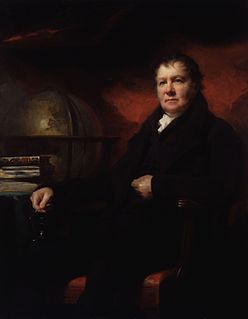A Quote by William Mountford
The years of old age are stalls in the cathedral of life in which for aged men to sit and listen and meditate and be patient till the service is over, and in which they may get themselves ready to say "Amen" at the last, with all their hearts and souls and strength.
Related Quotes
To be seventy years old is like climbing the Alps. You reach a snow-crowned summit, and see behind you the deep valley stretching miles and miles away, and before you other summits higher and whiter, which you may have strength to climb, or may not. Then you sit down and meditate and wonder which it will be.
He is not famous. It may be that he never will be. It may be that when his life at last comes to an end he will leave no more trace of his sojourn on earth than a stone thrown into a river leaves on the surface of the water. But it may be that the way of life that he has chosen for himself and the peculiar strength and sweetness of his character may have an ever-growing influence over his fellow men so that, long after his death perhaps, it may be realized that there lived in this age a very remarkable creature.
How it is I know not; but there is no place like a bed for confidential disclosures between friends. Man and wife, they say, there open the very bottom of their souls to each other; and some old couples often lie and chat over old times till nearly morning. Thus, then, in our hearts' honeymoon, lay I and Queequeg - a cosy, loving pair.
The Author of nature has not given laws to the universe, which, like the institutions of men, carry in themselves the elements of their own destruction; he has not permitted in his works any symptom of infancy or of old age, or any sign by which we may estimate either their future or their past duration. He may put an end, as he no doubt gave a beginning, to the present system at some determinate period of time; but we may rest assured, that this great catastrophe will not be brought about by the laws now existing, and that it is not indicated by any thing which we perceive.
When the time comes to you at which you will be forced at last to utter the speech which has lain at the center of your soul for years, which you have, all that time, idiot-like, been saying over and over, you'll not talk about the joy of words. I saw well why the gods do not speak to us openly, nor let us answer. Till that word can be dug out of us, why should they hear the babble that we think we mean? How can they meet us face to face till we have faces?
Business in a certain sort of men is a mark of understanding, and they are honored for it. Their souls seek repose in agitation, as children do by being rocked in a cradle. They may pronounce themselves as serviceable to their friends as troublesome to themselves. No one distributes his money to others, but every one therein distributes his time and his life. There is nothing of which we are so prodigal as of those two things, of which to be thrifty would be both commendable and useful.
When we see the many grave-stones which have fallen in, which have been defaced by the footsteps of the congregation, which lie buried under the ruins of the churches, that have themselves crumbled together over them; we may fancy the life after death to be as a second life, into which man enters in the figure, or the picture or the inscription, and lives longer there than when he was really alive. But this figure also, this second existence, dies out too, sooner or later. Time will not allow himself to be cheated of his rights with the monuments of men or with themselves.
As we walk our individual life journeys, we pick up resentments and hurts, which attach themselves to our souls like burrs clinging to a hiker's socks. These stowaways may seem insignificant at first, but, over time, if we do not occasionally stop and shake them free, the accumulation becomes a burden to our souls.
To a large extent, the aged in our society are ghettoized. Old people are seen as useless, bypassed by history, old-fashioned, in the way. So, not surprisingly, when we reach the official mark of old age, we're supposed to go gently into that good night, to get off center stage and hand over the spotlight. Old age is also surrounded by shame - the myth of impotence and inability.



































